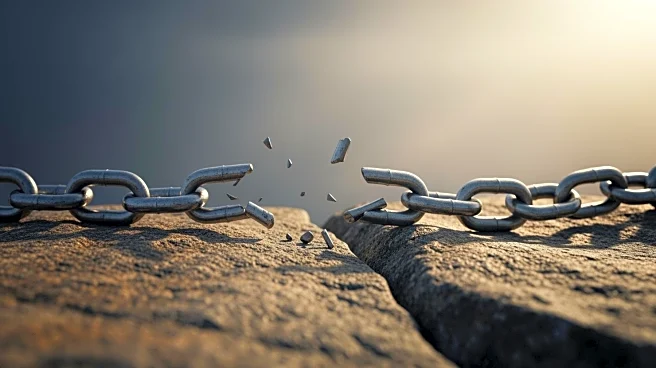What's Happening?
Since Russia's annexation of Crimea in 2014, the region has experienced significant human rights abuses. The occupation has been marked by efforts to suppress dissent, erase Ukrainian cultural identity,
and silence opposition. The Crimean Tatar community faces persecution, including arbitrary detentions and forced disappearances. Religious freedoms are under attack, with non-conforming communities facing harassment and legal action. The situation has worsened since Russia's full-scale invasion of Ukraine, with repressive measures in Crimea serving as a blueprint for restrictions in newly occupied territories. The UK has condemned these actions and called for the release of arbitrarily detained individuals, emphasizing the need for international human rights monitoring in Crimea.
Why It's Important?
The human rights violations in Crimea have significant implications for international law and global human rights standards. Russia's actions challenge the principles of sovereignty and territorial integrity, raising concerns about the erosion of international norms. The persecution of minority communities and suppression of cultural identity highlight the broader impact of geopolitical conflicts on human rights. The international community's response to the situation in Crimea reflects the ongoing struggle to uphold human rights in the face of political aggression. The UK's stance underscores the importance of international cooperation in addressing human rights abuses and holding perpetrators accountable.
What's Next?
The international community is likely to continue monitoring the situation in Crimea, with calls for increased access for human rights organizations. Efforts to hold Russia accountable for its actions may involve diplomatic pressure and potential sanctions. The ongoing conflict in Ukraine and the broader geopolitical tensions may influence future developments in Crimea. The situation remains fluid, with potential for further escalation or resolution depending on international diplomatic efforts and Russia's actions.
Beyond the Headlines
The situation in Crimea raises ethical and legal questions about the protection of minority rights and cultural heritage in conflict zones. The suppression of Ukrainian identity and religious freedoms reflects broader issues of cultural preservation and the impact of occupation on societal structures. The international response to Crimea's annexation highlights the challenges of enforcing human rights standards in complex geopolitical contexts. The region's history and current situation serve as a case study in the intersection of politics, culture, and human rights.










